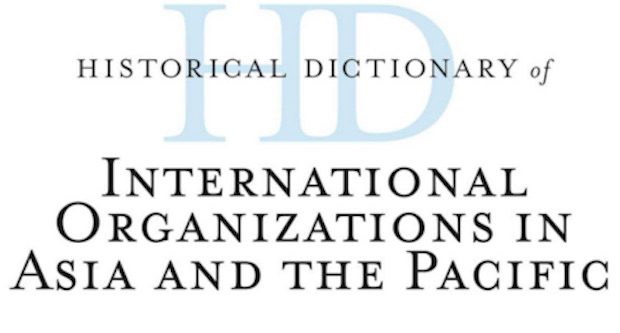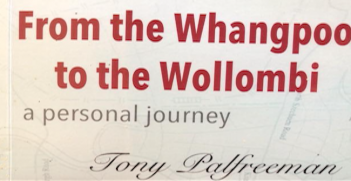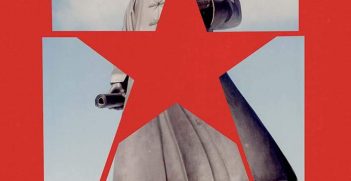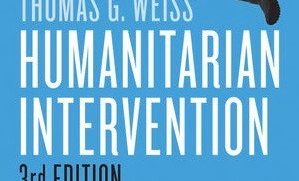Historical Dictionary of International Organizations in Asia and the Pacific

When Professor Derek McDougall wrote the first edition of this book in 2002, he lamented the relative under-development of the regional architecture for international cooperation. While the Asia-Pacific was a hotspot of military, political and economic competition for most of its modern history, its international organisations were lacklustre compared to other regions in the world. Twelve years later, an explosion in the growth of regional cooperation mechanisms have transformed the Asia-Pacific’s political landscape in remarkable ways. The second edition of the Historical Dictionary of International Organizations in Asia and the Pacific published in 2014 is extensively updated to capture the significance of these developments.
Professor McDougall is prudently aware of the potential theoretical difficulties that face his project to trace the evolution of international cooperation in the region. He sets out in the introduction to justify a description of the “Asia-Pacific” that canvasses the conventional understanding of the region while circumventing the possible Western-centric bias associated with the term. He grounds his selection of dictionary entries on the basis of political significance to bridge the gap between the major theoretical camps that can unproductively segment the picture of regional cooperation. The result is a comprehensive account of international organisations in the Asia-Pacific that is valuable for a wide range of purposes.
The main part of the book, as the name suggests, focuses on the historical development of the Asia-Pacific’s numerous international organisations that can be categorised into universal organisations with a global presence, regional and subregional organisations and international non-governmental organisations. The emphasis is on inter-governmental organisations while, with political significance in mind, a selection of internationally influential NGOs is covered. To place these organisations in the broader context of regional politics, the dictionary also includes entries on major political events that have affected the Asia-Pacific since 1945. The rest of the entries cover major organisations in other parts of the world, important personalities, basic issues and key policy initiatives that are important to complement the understanding of international cooperation in the region. The use of political clout as a rationale for inclusion means that many of the less influential organisations, especially NGOs, could not be included. Their exclusion on this basis does not significantly diminish a project that is inherently about providing wide-ranging and essential knowledge of the institutional structure of the Asia-Pacific as a whole.
The second edition follows the basic but effective structure of the first one. The main dictionary section is supplemented with the standard list of acronyms and abbreviations, maps and a chronology, updated to capture the latest developments up to 2014. Extensive cross-references are provided across entries to make locating information as rapid and efficient as possible. Although the dictionary has been extensively enlarged in this edition, it still serves mainly as a point of introduction and a reference tool on the topic. It underlines the importance of the expanded bibliography, aiming to offer readers a good representation of the literature on the various topics included, with emphasis on the publications since 2000.
With recent initiatives such as the Trans-Pacific Partnership and the Asian Infrastructure Investment Bank dominating global headlines, there is no indication that the expansion of international organisations in the Asia-Pacific will be slowing down any time soon. It is important not only for experts but also for the general public to understand the significance of these organisations to a region that is growing in influence in global affairs. The second edition of the Historical Dictionary of International Organizations in Asia and the Pacific has a place on the bookshelf of anyone who is interested in this area of inquiry.
Derek McDougall, Historical Dictionary of International Organizations in Asia and the Pacific, Rowman & Littlefield, 2014 (2nd Edition).
Duc Dao is a former intern at the National Office of the AIIA. This article may be republished with attribution under a Creative Commons Licence.





